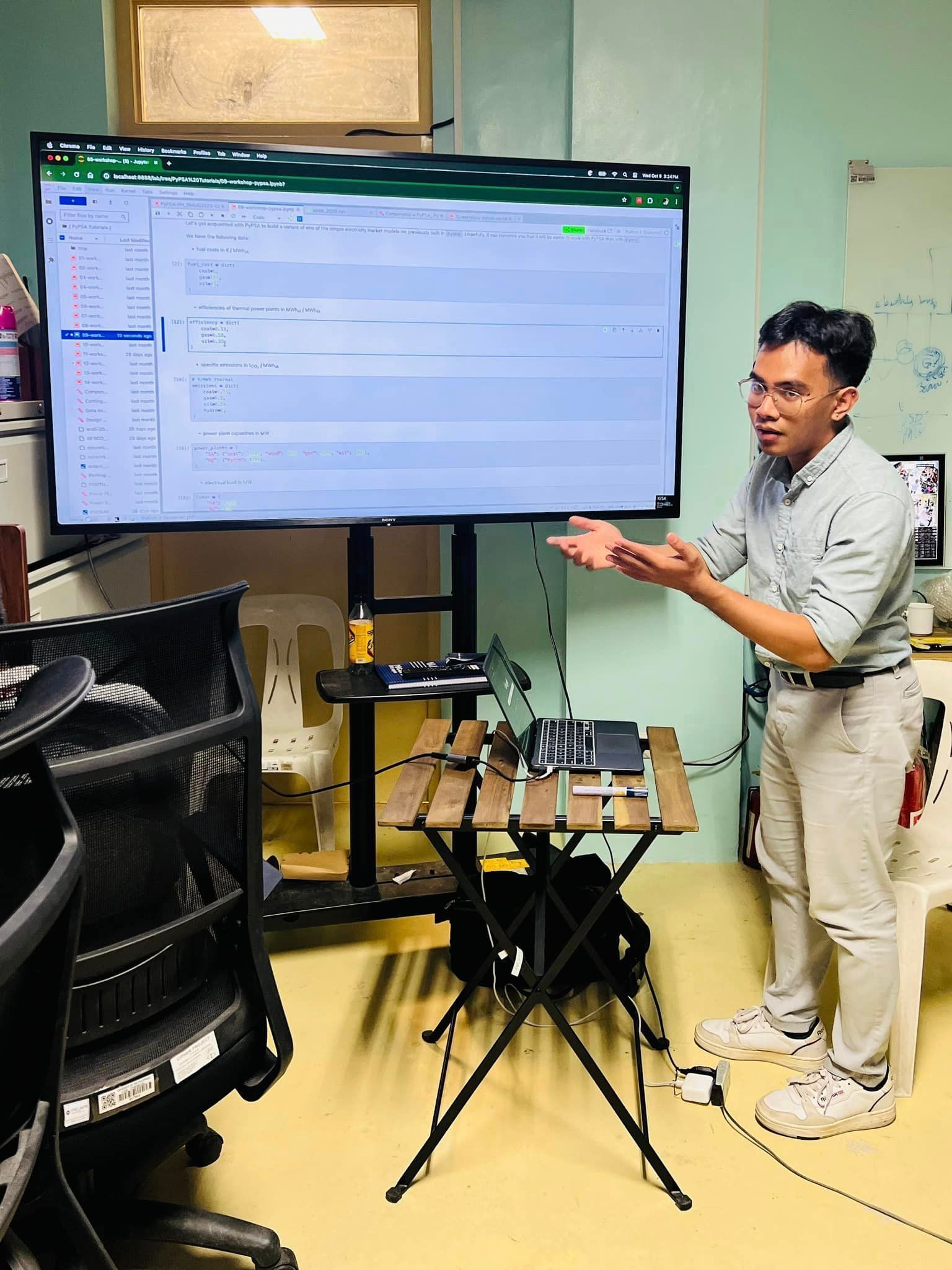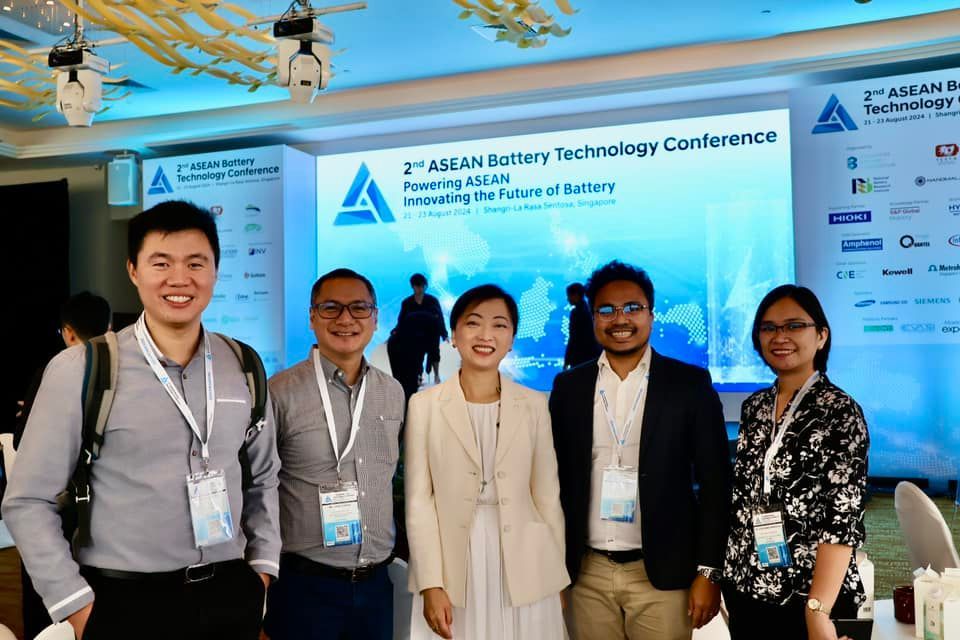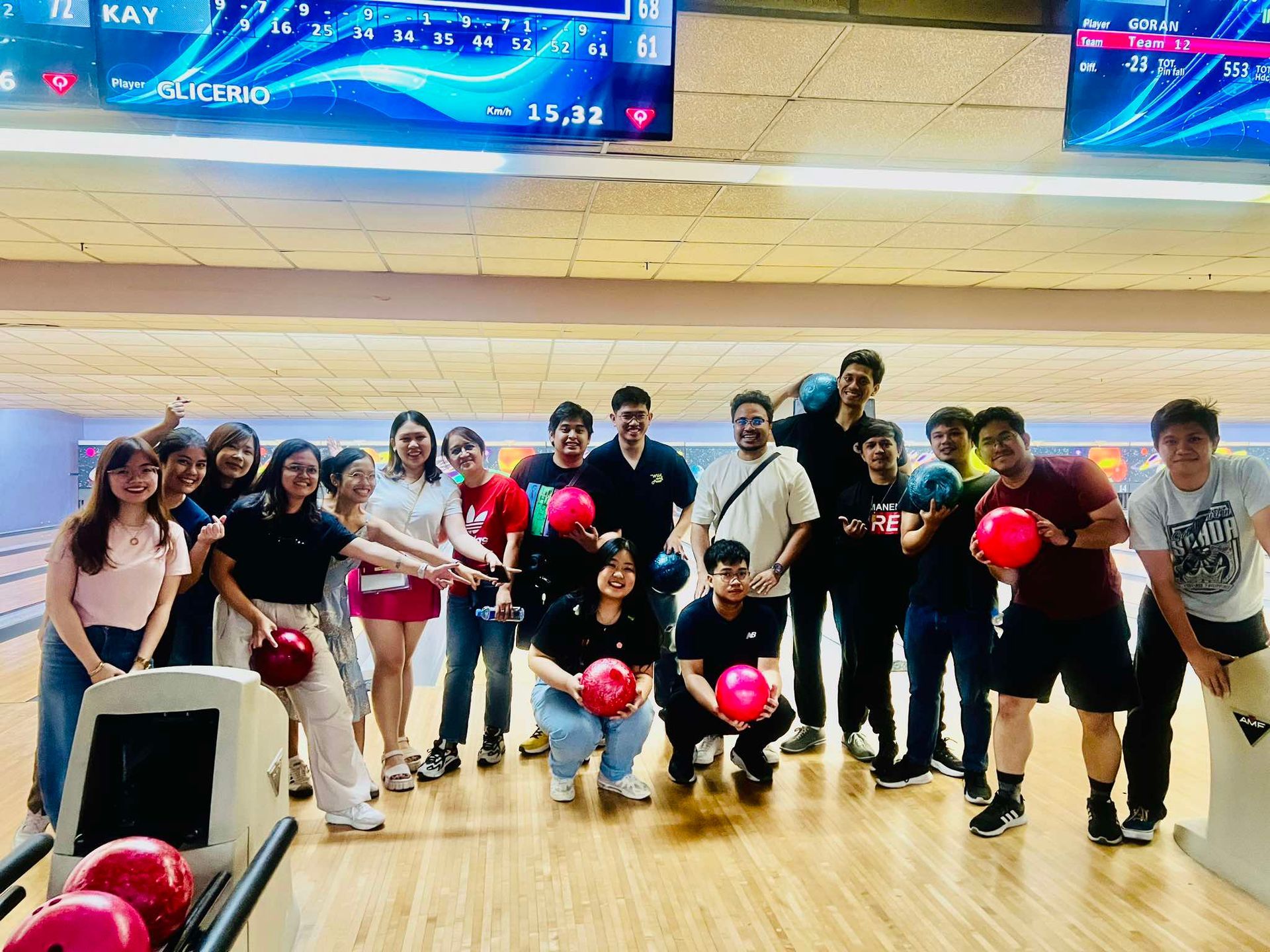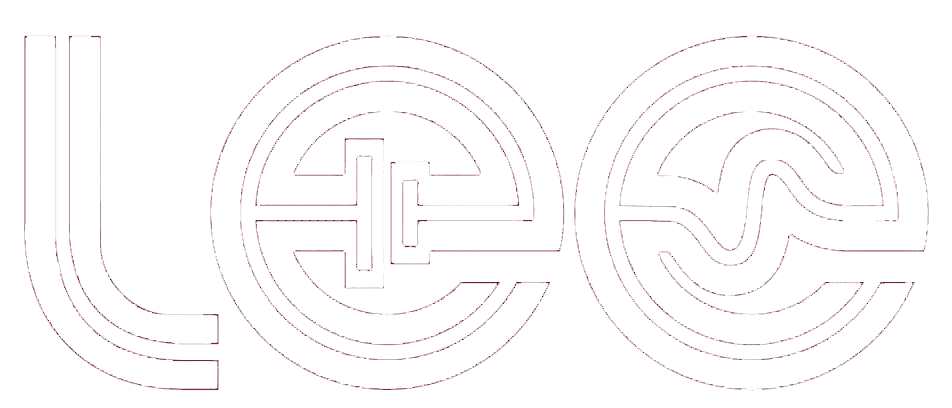Paving a Bright Future for ISLAnders

Maintaining a Summa Cum Laude academic standing (his GWA was 1.0 last semester) while working on various research works is no mean feat, but 4th-year Bachelor of Science in Chemical Engineering student Michael Castro makes it seem like it is. Excellence is something he has always strived for. Before entering the University of the Philippines Diliman, he graduated from Philippines Science High School Main Campus with high honors (1.274 GWA) and special awards such as the F.G. David Award (highest GWA in pure sciences), and Best in Physics and Chemistry.
He admitted that it was his interest in sciences, particularly chemistry, that led him to choose his course. “Like every uninformed high schooler, I chose Chemical Engineering because it has ‘chemistry’ and ‘engineering’ in it; and like every uninformed Chemical Engineering freshman, I also learned that it is a lot from (a lot better than) chemistry. What I like about this course is that it focuses more on the engineering aspect, which means it applies theories to possible real-world applications. I also find the lessons fun and challenging,” says Castro.
When he was in 3rd year, he joined the Laboratory of Electrochemical Engineering (LEE) under Dr. Joey D. Ocon’s guidance to have an early start on his undergraduate thesis. “Joining LEE is a really good opportunity for research. The lab does research from micro to macro so there’s always opportunity for growth,” he says. Dr. Ocon was immediately impressed with his eagerness to learn. “Michael has an immense potential to be a good scientist/research engineer, with his raw talent and intelligence, humility, coachability, and dedication to doing research. I have neither seen him complain when given graduate-level challenges in his research work, nor forget to send weekly reports via email. I hope he will choose to remain in the Philippines in the near future, after taking his PhD abroad. But, we – I mean the current generation of professors, mentors, and administrators – will have to do our job to make sure that the research ecosystem support is better than what we have now to make generational talents such as Michael stay. It’s a common story to hear about our summa graduates working abroad after graduation,” says Dr. Ocon.

Little did Michael know that this would propel him into becoming the lead developer of the Island System LCOEmin Algorithm (ISLA), an energy systems model and optimizer written in Python 3. “My research focuses on off-grid islands in the Philippines. These are remote islands that currently do not have access to reliable electricity. Connecting these to the mainland is infeasible due to their distance, so we study the feasibility of implementing standalone renewable energy sources on those islands. To help study these islands, we developed the Island System LCOEmin Algorithm, or ISLA for short. The software can model energy systems on off-grid islands and is available for the public and other researchers to use as well,” he explains.
Due to his immense skill in programming (Python, HOMER, MATLAB, C++, and Java languages), he is now involved in different researches on modelling and optimization of hybrid energy systems. These researches have been presented in five conferences all over the world (e.g. Czech Republic, Italy). In fact, earlier this year, their team was able to publish a conference paper in Chemical Engineering Transactions entitled, “Multi-Criteria Selection of Hybrid Energy Systems for Off-Grid Electrification”. The laboratory will be funding Michael to attend a conference in Cebu this week to present his paper entitled, “Development of an Open-Source Off-Grid Island Energy System Optimization Tool with Cost Project Analysis”, co-authored by Michael, Dr. Ocon, and Engr. Eugene Esparcia Jr, at the Sustainable Energy Ecosystems International Conference (SEECON 2018), co-located at the Philippine Microgrid Conference (PIMEC 2018).

Even with his busy schedule, he still makes time for co-curricular activities like holding academic review sessions for other members in his organization, University of the Philippines Academic League of Chemical Engineering Students (UP ALCHEMES). Outside the classroom, he enjoys playing video games like most kids his age. “The video games I play are usually the ones with cute anime girls in it, such as Doki Doki Literature Club, Danganronpa, and Hyperdimension Neptunia. I enjoy these kinds of games for the characters and for the story. I find these games as a nice way to relax and they give me a break from the usual engineering student life,” he shares.
With his high caliber and dedication to hard work, there’s no doubt that great things can be expected from him. Like a true Iskolar ng Bayan, his future goals include giving back to the community. “I plan to take my masters here in UP Diliman after graduation and I also plan to teach here, since I enjoy my course and I would like to extend that to the future generations as well. I would also like to visit an actual off-grid island one day and implement an actual renewable energy system there,” he says.





